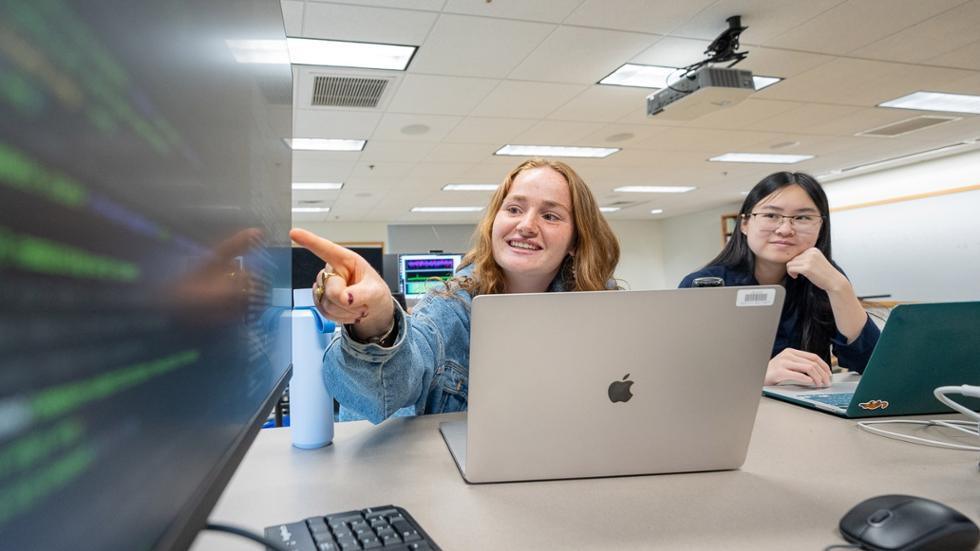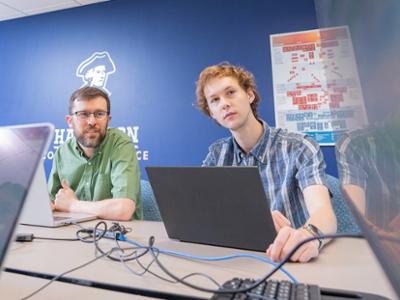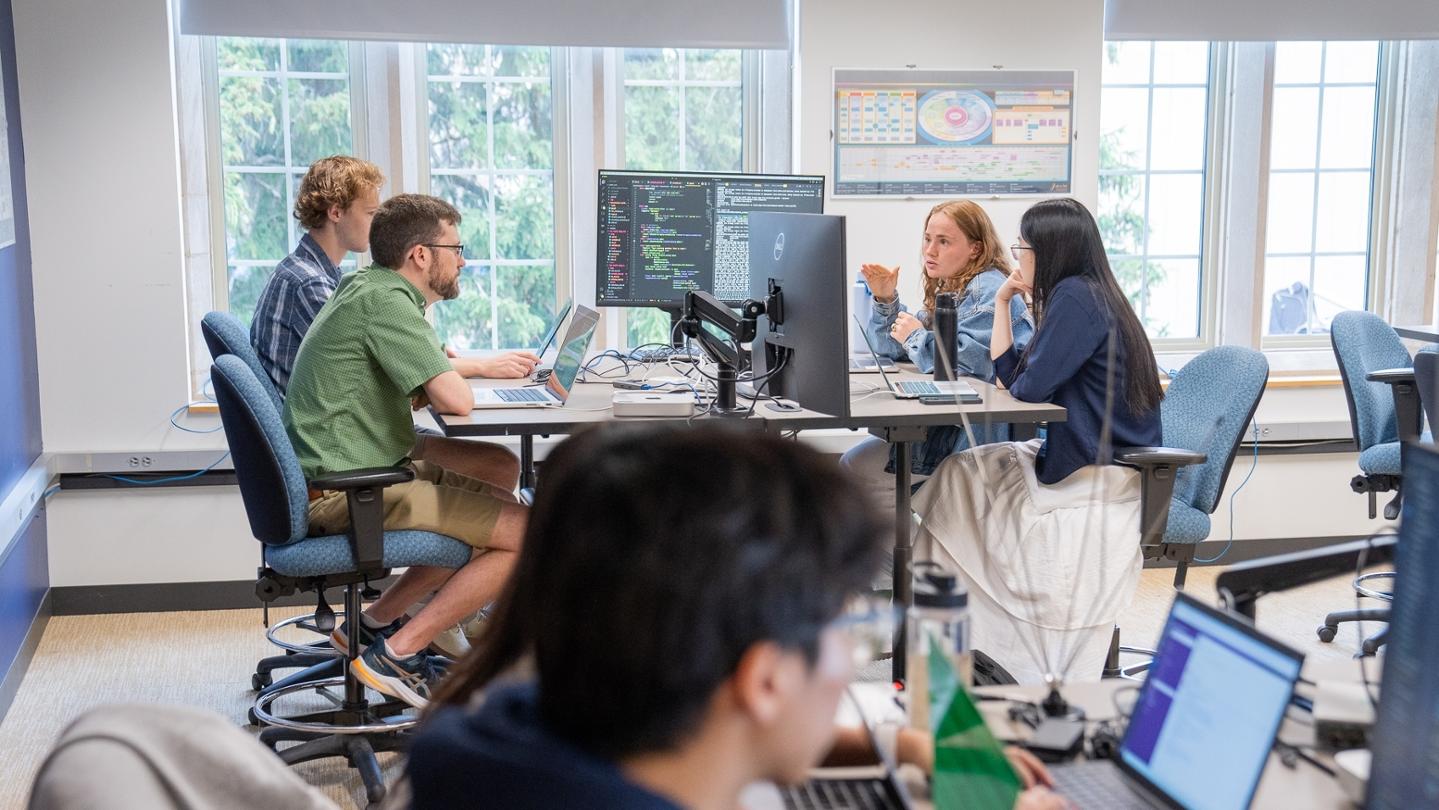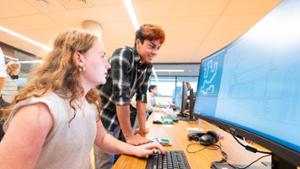
LLMs are highly sophisticated algorithms built on massive amounts of data and capable of predicting the statistically most likely next word. This power can be harnessed for all kinds of tasks, from drafting emails to coding itself, with varying degrees of success. Three ��ɫ���� computer science majors are spending their summer researching this cutting-edge technology alongside Professor Thomas Helmuth ’09.

Sydney Chen ’27, Owen Dennen ’28, and Isabelle Nahon ’27 are working to combine LLMs with genetic programming, a method mimicking natural evolution, to produce the fittest program for a certain goal.
“Historically LLMs have been kind of iffy with writing code, so we want to see if there is a way to make them better at that,” Dennen said. “On their own, LLMs aren’t always amazing at what they are trying to do. They need some supplemental design to help them be better.”
Chen explained, “We use LLMs to first prompt a solution to a code problem, and then we use that solution to seed a genetic programming generation if that first problem isn’t successful.”
Throughout the puzzle-like research process, the trio have relied on each other and Professor Helmuth as they tackle complex coding problems, talk through bugs and errors, and adapt to the ever-changing nature of their project.
“It’s super engaging because we’re constantly changing paths and asking, ‘what’s next?’ It’s also giving us a totally different perspective and allowing us to try so many different things than we would in class.”
“It’s really exciting to see when everything works as we expect it to. We have around 250 tests and when you run them and get to 100% pass, it’s really satisfying,” Dennen said.
Nahon agreed. “It’s super engaging because we’re constantly changing paths and asking, ‘what’s next?’ It’s also giving us a totally different perspective and allowing us to try so many different things than we would in class.”
Through their participation in Helmuth’s project, the students are gaining valuable early exposure to complex subject matter typically discussed in junior or senior year, allowing them to cultivate in-demand skills. “I’m really excited to get hands-on experience with LLMs and genetic programming since they’re both in the territory of machine learning, which is the big hot topic these days,” Chen said.
Nahon also expressed the value of learning how to work alongside AI and LLMs, saying, “We need to acknowledge what LLMs do well and what they don’t. What they don’t do well, that’s what we do. We need to learn what we can do to utilize AI and LLMs, but also where we fit in.”
As LLMs and their applications become more prominent, the skills Chen, Nahon, and Dennen acquire here will continue to appreciate in value. The findings of their research, too, have the potential to shape our increasingly digital era.

Posted July 2, 2025


